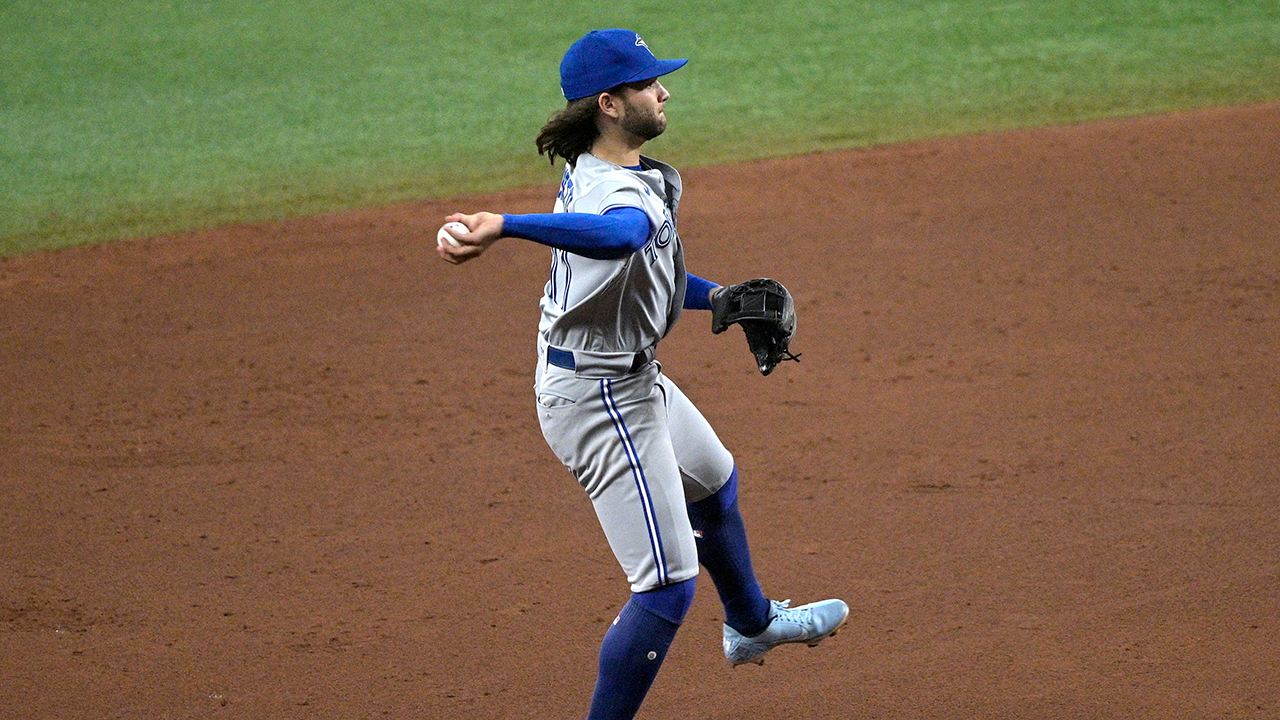
Let’s talk about Bo Derek.
Remember when Derek Jeter’s defence was so bad there was talk he’d need a position switch? Not later in his career when baseball people wondered whether he’d be better off at second, if not just simply retiring. We’re talking way before A-Rod arrived in the Bronx – you know, the pre-gift basket days. Before Mariah. Or Scarlett. Or Jessica 1 and Jessica 2.
We’re talking 1992. Jeter hadn’t even played a game in the majors, and there he was, one year after being the sixth-overall pick as a high school shortstop out of Kalamazoo, making 21 errors in 57 single-A games, a precursor to an even messier 1993: 56 errors in 126 games at Greensboro. Brian Cashman was in his first year as assistant general manager in 1992. Ring-sizing was not yet a thing in the Bronx, but inside and outside the organization, smart people wondered whether Jeter needed to become a centre fielder.
“I mean, Derek was an ugly duckling at one point, believe it or not,” Mitch Lukevics, the Yankees farm director from 1990 to 1996, told me a few springs ago when I was writing a piece on the reconstruction of the current Yankees. “Derek Jeter.”
Lukevics stopped to let that sink in. As Cashman told me that same spring, the Yankees managed to go 4-2 in World Series over an eight-year span with Jeter at short because they had a lot of money to cover mistakes and a little bit of luck and because his predecessor and boss, Gene Michael, oversaw a player development group that made a string of smart calls.
Smart?
He liked centre fielder Bernie Williams so much that he traded Roberto Kelly for Paul O’Neill; signed off on a decision to move 24th-round pick Jorge Posada from second base to catcher, and ditched the likes of Sterling Hitchcock and Bob Wickman to go all in on Andy Pettitte and Mariano Rivera. The Detroit Tigers had a news release prepared in 1997 announcing they’d acquired Williams, but the Yankees pulled out.
Another bright idea that never materialized was bringing in Felix Fermin to buy some time for Jeter. All it would have taken was Rivera. Hard pass.
Now, I know what you’re thinking: Jeter could have moved to centre and saved us all the fuss that resulted when the analytics folks started poking holes in the Jeter legend to show that while he might have been the captain of the Yankees, he was slightly less than the greatest defensive shortstop to walk the planet.
I’m sure Jeter feels no need to apologize – the glare from the rings and the office copy of his Hall of Fame plaque probably offer some solace – and yet after watching the Toronto Blue Jays somehow pull out a series win over the Tampa Bay Rays, I’m left wondering whether folks want the local shortstop, Bo Bichette, to offer up an apology of his own. Me? I’d rather he just not go 0-for-13.
Comparing Bichette’s 16 errors to Jeter’s 10 after 87 career games is, at best, a vaguely interesting statistical exercise and probably isn’t any more valuable than pointing out that the current face of the game, San Diego Padres shortstop Fernando Tatis Jr., committed two more errors in his first 87 games than Bichette. Different players and eras, certainly, between Jeter and the other two: Jeter played 444 minor leagues games compared to 276 for Tatis Jr., and 272 for Bichette. Plus shifting, analytics and the way the game is pitched.
But it does make the Bo-Derek thing work, doesn’t it? And it is timely given much of the talk around the Blue Jays this weekend was about whether it’s time to move Bichette from shortstop to second base. It’s a discussion I don’t mind having. I kind of initiated it a few weeks ago – but in the context of next season. Not now.
And I haven’t changed, although Bichette’s defensive metrics aren’t great so far – a glance at Fangraphs UZR ratings and defensive WAR shows him to be slightly less than average defensively while the Fielding Bible has him 20th among shortstops in runs saved, down from 17th in the 60-game 2020 season.
Bichette’s issues in the field – he has committed six in 19 games, including two on Saturday, and has turned any throw in which he has time to think into an adventure – have been magnified by his two errors in that last playoff game against the Rays, plus the fact that third baseman Cavan Biggio has had an even more stuttering start defensively while Vladimir Guerrero Jr., is learning first base by making routine plays look routine and difficult plays look difficult in the way they wouldn’t if, say, Justin Smoak was at first.
Tatis Jr., cut his teeth with Manny Machado beside him and Eric Hosmer playing a smooth first base. Bichette is also a victim, in some ways, of an organizational ethos that has emphasized positional flexibility. Other than catchers Danny Jansen and Alejandro Kirk, Bichette is the only regular to have played the same position since his debut, and now that the regular left side of the infield looks threadbare and Santiago Espinal and Marcus Semien have played at third and shortstop, respectively, in a game the Blue Jays have won, you know it’s a matter of time before the chattering classes wonder why Bichette isn’t being asked to move at a time when everybody else is shuffling around.
Or hasn’t volunteered to do so.
I’m just not sure it’s that easy to move him to second base and let Semien handle shortstop. True, turning the double play is less of an issue now that rules prohibit the takeout slide at second and shifting has changed some of the dynamics of that position. But moving Bichette doesn’t address Biggio’s defensive woes at third and with both George Springer and Teoscar Hernandez due back, I’m intrigued at the notion of sticking Biggio at the bottom of the order and telling him to just go back to what he was doing last year: getting on base by hook or by crook and giving Springer a shot with a man on base and the pitcher in the stretch.
Might a preferred option be moving Biggio back to second – where he’s comfortable – and asking Semien to move to third and leave Bichette at short? Is that an overall defensive improvement?
Semien actually played more games at third than at second before making a career-saving shift to shortstop full-time in 2015. Yes, the Blue Jays told him he’d be at second this year when they signed him to an $18-million, one-year, free-agent contract but if Semien did that thinking he’d use this season to build up value next winter by showing he was versatile, wouldn’t a willingness to go third just reinforce the idea in the mind of a prospective employer? Plus, it will be Semien’s bat – not his fielding – that determines his next deal.
We’ve talked about this before, haven’t we? About how the Blue Jays have kicked the tires on shortstops these past two winters despite having Bichette and prospects Jordan Groshans, Austin Martin and Orelvis Martinez. That’s indicative of something. So is the manner in which they have kept Bichette in the loop; treated him like a player who will be signing a multi-year contract with them at some point in the near-future. The unspoken understanding: you’re our shortstop until we can bring in somebody so good that you volunteer to go to second.
My guess is Bichette’s smart enough to get it, and likely smart enough to want a full spring training to manage the change. This front office made its mark with the Cleveland Indians through drafting and development and sometimes stuff happens when you rely on riding the learning curve with young human beings – stuff like managing the parallel ascensions of Francisco Lindor and Jose Ramirez, which has worked out fine despite the fact position changes and egos needed to be managed. It helps when the talent is worth it all, you know?
Jeff Blair hosts Baseball Central from 2-3 p.m. ET on Sportsnet 590 The FAN.






